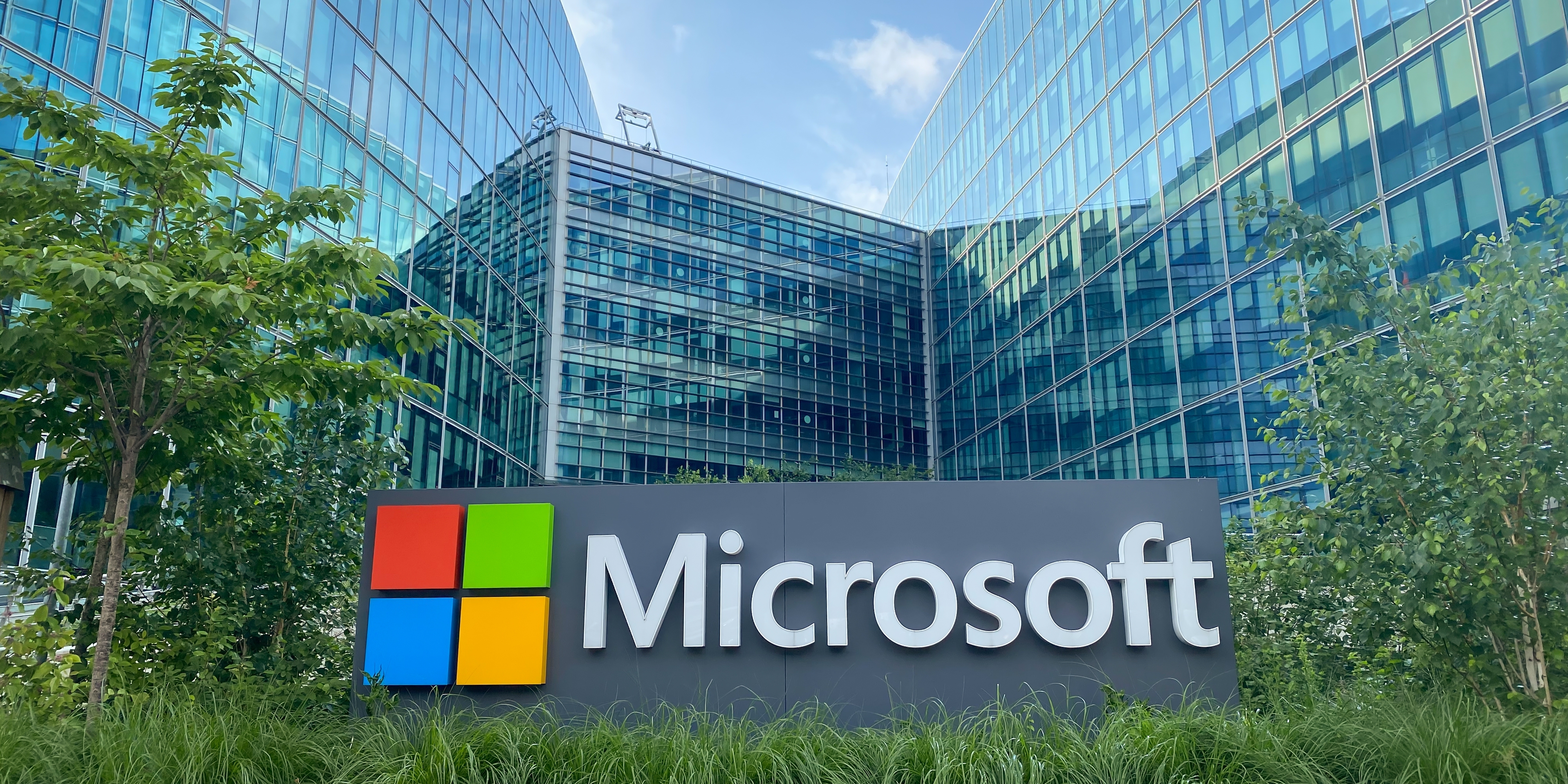Microsoft Shares Slide on Forward Guidance
MSFT
Shares in technology behemoth Microsoft Corp. are down nearly 7% in the morning trading session even as the company announced first quarter financials that generally beat analysts’ forecasts. Foreign exchange headwinds, and an impending global recession, and slowing expansion in its high-growth cloud business resulted in negative investor sentiment on Wednesday. Microsoft is also underperforming the S&P 500 for the year, with shares down 29.9%, versus the 18.8% decline in the benchmark.
The company reported first quarter adjusted earnings per share of $2.35, ahead of expectations for $2.29, but well below last year’s $2.71 Revenue was up 11% year over year to $50.12 billion, also ahead of the average analyst estimate for sales to be $49.55 billion. Productivity and Business Processes revenue climbed to $16.47 billion, well ahead of the $16.11 billion expectation. Personal computing revenue of $13.33 billion similarly came ahead of the forecasted $13.08 billion but was flat from the same time last year.
Intelligent Cloud, the Azure business that’s been the driver of growth over the past few years, reported revenue of $20.33 billion that only met Wall Street’s expectations, while total commercial cloud revenue of $25.7 billion also did not manage to impress. Azure revenue growth decelerated to 35%, lower than the 46% averaged over the past year. Excluding foreign exchange, growth would have been a much better 42%. Like most tech heavyweights, Microsoft generates more than 50% of its revenue from outside of the U.S. Additionally, management guided to a further five-percentage-point decline in Azure growth for fiscal Q2.
A sharp slowdown in personal computer sales was largely expected during the quarter, especially as the company was lapping tough year over year comps, but the slowdown in Azure could be more concerning for investors. Chief Executive Officer Satya Nadella also said during the earnings call that Microsoft would aim to contain costs and eliminate redundant positions. Further, Chief Financial Officer Amy Hood said that the company would spend an additional $800 million this calendar year on higher costs of powering data centers as electricity rates rise.
Microsoft’s recent success has come as the company has become a backbone for enterprises that use its products from everything such as Excel spreadsheets and Word documents, to Teams for better firm-wide communicating, to cloud computing and security solutions. The company also acquired LinkedIn under Nadella, in a bet to become an end-to-end enterprise service provider. Slowing economic growth could force those firms that rely on Microsoft to reduce their spending on software offerings.
Operating income, crucially, still seems to remain buoyant for Microsoft, coming in at $21.52 billion, well ahead of the $21.29 billion expected. The company’s capital expenditure was further contained during the three-month period, coming in at $6.28 billion versus the estimated $6.53 billion. Hood also said that leadership continues to “feel good about the businesses we are investing in, the strong growth rate and the position in the market.”
This content is provided for general information purposes only and is not to be taken as investment advice nor as a recommendation for any security, investment strategy or investment account.

